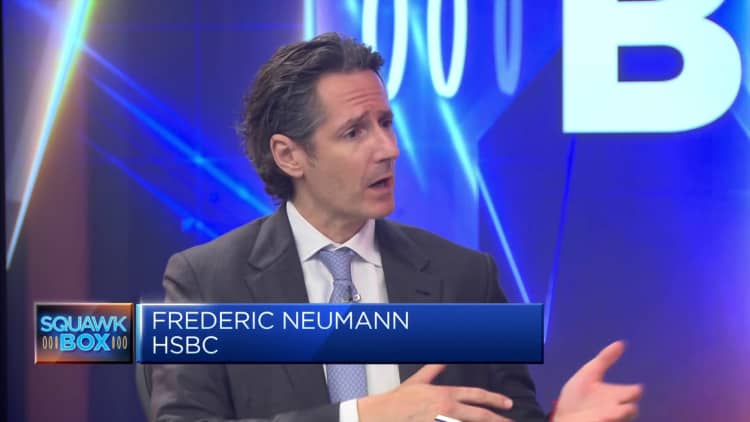Investors have been monitoring for potential intervention in the Japanese yen, but recent comments have triggered discussion about "coordinated intervention" with South Korea.
The Japanese yen has hovered around 34-year lows against the U.S. dollar. The currency has struggled, slipping past 150, since the Bank of Japan raised rates in March. Meanwhile, the South Korean won recently slipped to an 18-month low of 1,389.5 against the greenback. Authorities in both countries have called the movement in the currencies "excessive."
Following that volatility, the U.S. last week acknowledged Japan and South Korea's "serious concerns" over the recent sharp depreciation in their currencies. Treasury said all three sides agreed to "consult closely on foreign exchange market developments."
The comments spurred chatter about possible coordinated currency intervention.
That would fit a recent pattern of deeper and wider cooperation between Japan and South Korea, said James Brady, vice president with the political risk advisory team at consulting and advisory firm Teneo.
"It is not unreasonable for markets to speculate on coordinated action given the unprecedented statement mentioning 'serious concern' on the part of Tokyo and Seoul," Brady said.

More importantly, a joint currency move with would bring political as well as economic benefits to both sides if it succeeded in lifting both the yen and the won against the dollar, he added.
But Brady warned these moves would only have a lasting impact if done in coordination with U.S. counterparts. He explained that in absence of U.S. support, interventions in the yen typically see "a short-term bump, before the yen returns to its previous path."
Brady said South Korea and Japan could amplify their individual messages to the market by coordinating policy, which might also enhance the short-term impact compared to unilateral action. But both countries recognize that the U.S. is the heavyweight in the currency market, he said.
Without U.S. participation, Brady suggested that the possibility of Seoul-Tokyo joint action may be mitigated.

But, should the two central banks decide to intervene, Brady said the Bank of Japan and Bank of Korea would jointly make the decision, and presumably carry out parallel operations without any public announcement.
Line in the sand
Analysts had expected the Bank of Japan to prop up the yen, after authorities repeatedly warned of "disorderly conduct" in the yen.
But the BOJ did not announce any intervention at the 150 mark, nor at 152 or recent levels around 154.

While markets get excited about a proverbial "line in the sand," Frederic Neumann, HSBC's chief Asia economist and co-head of global research in Asia, told CNBC the more important thing is to monitor how the yen weakens.
Citing his conversations in Japan with asset managers, Neumann said the yen weakening to 160 or 170 against the greenback is "not necessarily out of the realm of possibilities."
"Now, that doesn't mean everybody's forecasting that level. But I think that that there is some comfort around this [level]," he said. "The question is, how do we get there? Do we get there in one fell swoop? Does this rattle markets?"
If the yen sees a "steady depreciation," the economist said there might not be much resistance from Japanese authorities. Neumann noted a weak yen helps Japanese exports, especially against a backdrop of a weakening euro and Chinese yuan.
Teneo's Brady however, thinks it would be a "surprise" if the yen fell below 160 without at least a symbolic intervention. But he also said "past precedent is that it doesn't have to be a psychologically significant number (ending in a zero or a five) for Japanese authorities to intervene."


